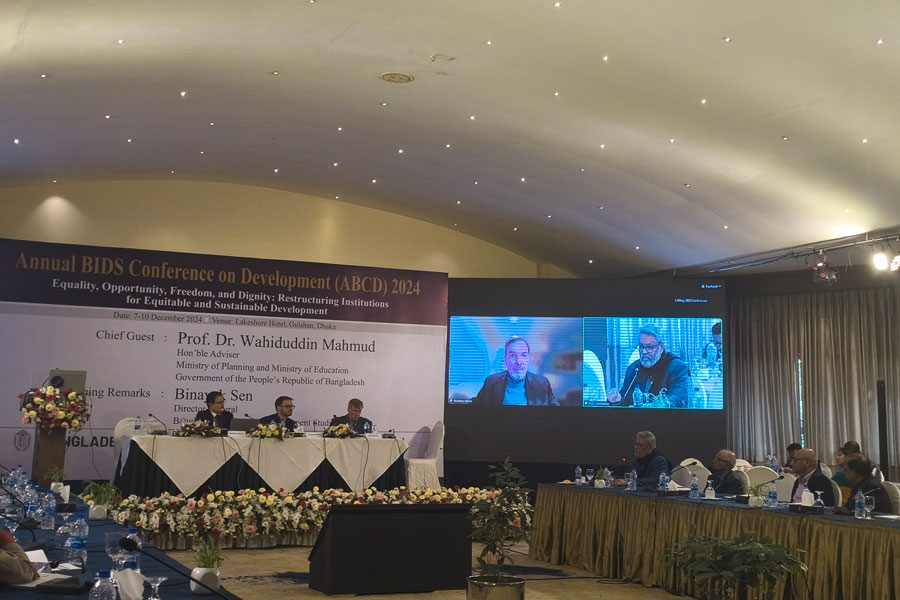Higher import tariffs on rice lead to larger price spikes: Experts

Published :
Updated :

Higher import tariffs on rice lead to larger price spikes across the year, experts observed at a BIDS seminar on Sunday.
A robust production, coupled with the government intervention through procurement and sales, could keep the rice market stable, according to a study conducted by the IFPRI researchers.
The report, titled ‘Rice Markets and Price Stablisation in Bangladesh’, was presented by Nicholas Minot, a senior research fellow at the International Food Policy Research Institute (IFPRI).
The report was presented at the academic session-4 of the four-day Annual BIDS Conference on Development (ABCD 2024).
The report also said higher tariffs might generate more revenue initially, but after a certain points, revenue levels decline.
Minot’s research revealed that reducing food operation by the government by a half could impact the rice market by 12-13 per cent.
“A buffer stock has the potential to significantly reduce price instability, but it is difficult to get price band ‘right’,” said the report.
The study also said a low price band causes stock depletion while a high price band results in over-accumulation (a price band is a value-setting method in which a seller indicates an upper and lower cost limit, between which buyers are able to place bids).
Imports to replenish public stocks and exports of surplus stocks could help address this issue, but these measures are expensive
An adaptive buffer stock system, with adjustable prices, reduces costs compared to traditional buffer stocks, Minot stated.
Minot also recommended eliminating or reducing rice import tariffs as this could reduce price instability with little impact on revenue or farmer incentives
He also advocated aligning procurement and/or distribution patterns more closely with surplus and/or deficit trends.
He showed that procurement and distribution could be more closely linked to prices.
The paper noted that just 9.0 per cent of procurement occurs in May 2024, even though this month has the lowest prices.
Minot also recommended encouraging private-sector storage by farmers and traders to ensure a stable market.
Meanwhile, three additional papers on fisheries, food security and south Asian food price policy and food stocks were discussed by IFPRI officials at the academic session.
The session on Agriculture and Food Security by IFPRI was chaired by Shahidur Rashid, Director, South Asia Region, while Senior Research Fellow of the same organisation Paul Dorosh presented a paper titled, ‘Food Price Policy in South Asia: Cereal Stocks, Prices and Trade’.
Senior Research Fellow of IFPRI Benjamin Belton presented the paper, titled ‘Aquaculture Value Chain Development: Emerging Policy Insights’, while BIDS Professorial Fellow MA Sattar Mandal gave a speech on corporate agriculture.
tonmoy.wardad@gmail.com


 For all latest news, follow The Financial Express Google News channel.
For all latest news, follow The Financial Express Google News channel.